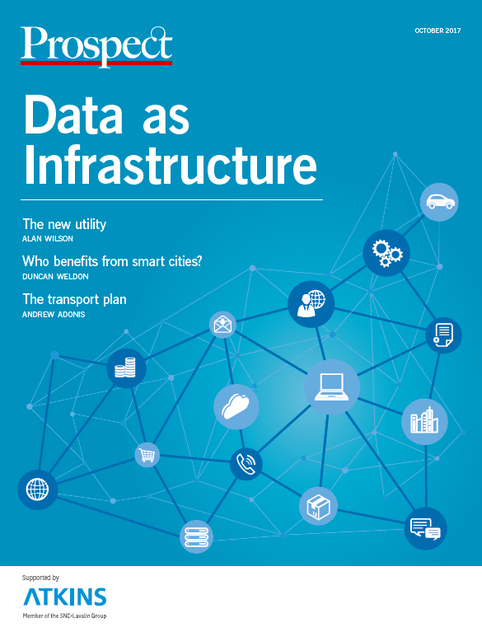
Scroll down to find all the pieces from this report
More data is available to policy-makers, businesses and individuals than ever before and it is having a profound impact on how firms and government deliver their services. It could also transform how both operate.
“Smart cities” may sound like a buzz-phrase, but across the UK—in places like Manchester, Birmingham and Bristol—local authorities are beginning to see data as what it is: another form of infrastructure. In the coming decades, creating efficient, well-planned cities will mean using physical and data infrastructure to their full potential.
This special report grew out of a series of high-level roundtable meetings over the summer which brought together government, private businesses and the third sector. The articles and essays look at how data is already being used to improve people’s lives and how it has the potential to do so much more. It focuses particularly on transport—an area which has already seen huge changes in ticketing practices and which will be further transformed by the arrival of autonomous vehicles in the future.
It’s very easy to have a vision of how “smart cities” should work in 2030. This report is about the practical steps we need to take now to get there.
The future will be data-driven
We should boast about our world-class achievements in transport
As cities look ahead they must focus on full transport integration
The modern economy: Local authorities have to adapt—or trouble awaits
Open data can drive progress—if you empower communities to use it
Councils must meet their digitally-savvy residents’ demands
How can a city welcome driverless cars?
Who benefits from smart cities?
The numbers: How is data being used in the UK?
Smart city-regions need smart people
What data could do for planning
Who knows you better—you, or your smartphone?
The digital future: What should business know?
A fourth industrial revolution?
If policymakers are to make better decisions, the data needs to be up to scratch
The new localism
The way forward: Addressing the needs of cities of the future
...then you can download the whole Data as Infrastructure supplement as a fully designed PDF document. To do so, simply enter your email below. You’ll receive your copy completely free—within minutes.
[prosform fields="email,forename,surname" signupcode="Data" countrycode="GB" redirect="data-as-infrastructure-is-yours"]
When you sign up for this free report, you will also join our free Prospect newsletter.
Prospect takes your privacy seriously. We promise never to rent or sell your e-mail address to any third party. You can unsubscribe from the Prospect newsletter at any time













